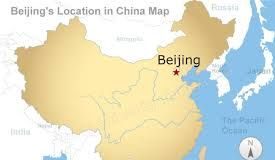MARKET PERSPECTIVE
By J Mulraj
May 26- June 2, 2023
Unless individual investors are protected, the India story will dilute
India ranks 63/190 countries in World Bank’s Ease of Doing Business ranking, overall. The ranking is based on various criteria. India scores best in the criteria ‘Protecting Minority Investors’, in which it is ranked 13/190.
Perhaps the World Bank should take a relook at this. It’s ranking is based on effort, more than on result. So, it looks at efforts, e..g at disclosures (like whether a director has disclosed a conflict of interest), shareholder rights (whether 10% of shareholders call a meeting), director liability (a director is liable to pay damages if shareholders succeed) etc. But not at outcomes!
Here are some examples how individuals shareholders have been badgered, as depicted, instead of protected, by authorities.
Actions speak louder than words, so these examples serve to belie the reason for the establishment of SEBI, the regulator, formed, as in its preamble, ‘to protect the interests of investors in securities’.
Amravati Bonds issue: In 2018 the Government of Andhra Pradesh, then headed by Chandrababu Naidu, made an issue of Municipal bonds, of ₹ 2000 crores, listed on the BSE Bond platform. The 10 year bonds, with a 5 year moratorium, carried a 10% interest, payable quarterly, and guaranteed by the State Government. It was subscribed 1.5 times. Of the ₹ 2000 crores, two large mutual fund houses, Franklin Templeton (₹1000 crores) and Aditya Birla mutual fund (₹ 300 crores) were the main subscribers. Unlucky for their unit holders.
Shortly after the issue, the Government of Chandrababu Naidu fell, and the new Government refused to acknowledge its liability to service the bonds. The refusal was on the ground that the bonds had not been notified in the Government gazette, a prerequisite to bind the Government. Investors are stuck! There has been no trading at all, on the BSE platform.
What were the consequences? In April 2020 Franklin Templeton abruptly suspended 6 of its debt mutual fund schemes, 3 of which held, and still do, Amravati Bonds. Bond holders were later paid, but the fund house, then #9 in India, has suffered reputational damage. Its AUM has dropped from ₹ 1.1 lac crores to ₹ 65000 crores.
Here are the questions arising:
- Has SEBI investigated the imbroglio? Has it protected investors? The offer document had been submitted to it, so was it examined, or merely filed? Again, does SEBI protect investors?
- How did BSE Bond platform permit listing? Were the bonds eligible for listing? Did BSE verify if the bonds had been notified? Surely investors cannot be expected to know of this requirement! They rely on BSE. Did BSE protect investors by allowing listing? Not a single transaction has been done on it; did it collect listing fees?
- Did the sole manager, A K Capital, do its due diligence, to verify if the bonds had been notified?
- What happens in 2024, when the moratorium of 5 years is over, and repayment of bonds, @20 % per year, commences? Do investors get money back? The new State Government has disavowed liability on the bonds. So have Franklin Templeton and Aditya Birla funds written them off fully? If not, is it not an improper disclosure?
- Has Andhra Pradesh state been debarred from accessing capital markets? If not, why not?
Is the Modi Government protecting individual investors?
NSEL Scam: The National Spot Exchange Ltd (NSEL) was promoted, and fully owned and controlled by Financial Technologies India Ltd (FTIL), now called 63 Moons. The scam broke in 2013, after the Forward Market Commission (FMC), the commodities regulator, declared forward contracts on it, which were being carried on for years, as illegal. Till then, investors bought commodities, through NSEL registered brokers, which were supposedly stored in warehouses regulated by the Governmemt, and sold them at a future date, at a higher price, earning a return. When the FMC stopped trading, some 13,000 investors were affected to the tune of Rs 5600 crores. These investors have not been protected and, (except for those who invested less than Rs 10 lacs) are still waiting to get their money back.
Here are some questions arising:
- The Government (Department of Consumer Affairs) of India gave permission to set up the exchange in 2007. Moreover, it did not clarify who was to regulate it. Was it SEBI, the stock market regulator, since FTIL was a listed company, or was it FMC? It hadn’t been thought of nor clarified. As a result, NSEL went unregulated. Surely Government of India is an accessory in this scam because of this fact alone! Any democratically elected Government worth its salt should acknowledge and shoulder this responsibility. It is a crying shame that this one, promising good governance, hasn’t.
- The receipts for the goods supposedly deposited with the warehouses, were fraudulent, since the warehouses had not, actually, received them. Warehouses are regulated by a Government entity called Warehouse Development and Regulatory Authority (WDMA, not to be mistaken for WMD, which are weapons of mass destruction, though victims of its negligence can be forgiven for so assuming). Its absence of oversight thus makes the Government an accessory in the scam.
- Various Government agencies have seized assets of defaulting borrowers, worth Rs 7200 crores, till 2017, and efforts to dispose them began 6 years ago () .Yet, to date, except for those who invested under Rs 10 lacs, no victim has been paid anything. So what is being done with the seized assets? Can Mr Modi answer why, ten years after the scam broke, nobody in his Government, not the regulator, nor the enforcement agencies, nor the courts which permit defaulters to keep postponing, are concerned for the victims? Are they supposed to protect perpetrators? The seized assets are sufficient to cover all claims. Failure to recompense victims indicates a pathetic absence of effort by investigative agencies and by the courts.
- Against all international norms which treat all victims equally, our courts have permitted the slicing of investors. First, those under Rs 10 lacs, which have been paid fully, next slice Rs 10-20 lacs, and God knows how many slices there will ultimately be. Please tell us, Mr Modi, where such arbitrary slicing is done? Give us just one example!
Besides NSEL victims of other ponzis like Saradha, Rose Valley and others continue to suffer. The regulators, the enforcement agencies and the courts are disdainful of the suffering of the victims. Instead, attention is being diverted to brokers like Anand Rathi and IIFL, who are intermediaries and not the perpetrators of the scam. Can India become #3 world economy unless its investors are protected? No!
US 64 scam: Unit Trust of India (UTI) was established by the GOI as the first mutual fund, in 1963. In 1964 it launched an open ended equity mutual fund called US 64. Like any other open ended fund, the sale and repurchase price of the units were a little above, and below, respectively, its net asset value (NAV). After the Bangladesh war, one of the measures undertaken by PM Indira Gandhi was the dividend control act. Fearing that this would lead to large withdrawals from its flagship scheme, US 64, the management of UTI cut the pricing link to NAV (Again a departure from international norms where all open ended funds are linked to NAV as they should be). But, as in the arbitrariness in slicing investors into Rs 1-10 lac category in the NSEL case, instead of treating all equally, Indian authorities always try to be over smart and concoct something new.
US 64 units were sold, and repurchased at prices in excess of NAV. Since the units were highly liquid, and redeemable in 3 days, they became popular with large companies, who earned double digit returns with assured liquidity. Chickens have a nasty habit of coming home to roost, as they did for US 64.
When UTI realized that assets were far lower than the redemption value it had then offered, it shut down the scheme. Later the Government gave partial relief. A few units were bought back at Rs 10 (if memory serves me right the last sale was at Rs 16, entailing a loss of Rs 6 overnight) and for the balance unit, repayment was staggered, with a tax free interest.
In return for such relief, the Government took over holdings in 3 main companies, viz. UTI Bank, renamed Axis Bank, L& T, and ITC. These have hugely appreciated in value, more than compensating it for the rescue package.
Here are some questions arising:
- Government owned entities, like UTI, also cause losses for individual investors. But at least investors got a part of their money back, unlike in NSEL and other private company scams. Does the Government care about losses for all individual investors, or does it protect only those of its own institutions?
- Why did it allow US 64 to deviate from NAV pricing, the thing that caused the mess? Even if we accept the unacceptable argument that it was due to the exigencies of the Dividend Control Act, should it not, then, have reverted to NAV linked pricing once the Act was terminated? Has anyone in Government studied, and learnt from, its mistakes?
- UTI holdings in 3 good companies (Axis Bank, L&T, ITC) have appreciated. These assets, which were transferred to a Government owned entity belong, in truth, to unit holders. Does the Government not feel obligated to sell these and partly distribute proceeds to erstwhile holders? Is this not akin to the claim by former colonies of Great Britain, for stolen treasures?
Last week the BSE Sensex closed the week at 62547, up 46.
The good news is that Biden and McCarthy have agreed to a 2 year deal to raise the debt ceiling, which includes some $ 2 trillion in spending cuts and easier clearance for energy projects. The bad news is that the debt ceiling is only suspended! This means that the Government has no limit on borrowing! That is crazy!
Even whilst the Ukraine war continues, Xi is ratcheting up tensions. He has refused a military hotline, a highly dangerous development. Chinese aircraft buzzed dangerously close to a US aircraft, just the sort of incident that could, without a line of communication, escalate a conflict.
India’s GDP growth has come in at 7.2%, but because of a low base effect. Previous year growth was negative. GST tax collections are up in April (by ₹ 20000 crores) and May (by ₹ 17000 crores) over the previous year.
So India is doing better than other large economies. Germany is officially in recession. But India’s growth would be curtailed if investors, domestic and foreign, are not protected. If this argument is not enough for GOI to act to recompense victims, please do consider that there are 110 million investors and they, too, vote.
Picture Source: https://bangaloremirror.indiatimes.com/bangalore/crime/3-men-gang-up-to-attack-traffic-cop-on-hosur-main-road/articleshow/74448293.cms










































COMMENTS